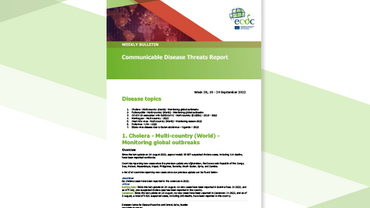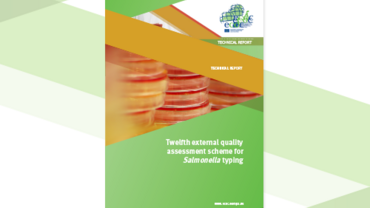External quality assessment scheme for influenza virus detection and culture for the Community Network of Reference Laboratories for Human Influenza in Europe 2010/2011
This was the second rapid detection and culture EQA panel distributed by the Community Network of Reference Laboratories for Human Influenza in Europe (CNRL) since the European Influenza Surveillance Network (EISN) was established in 2008. The objectives of the exercise were to both provide participants with an independent mechanism to check performance and to provide information at the network level as to the capacity and capability for rapid detection by polymerase chain reaction (PCR), influenza virus culture and strain characterisation within a defined reporting timeframe. Thirty-four laboratories from 27 European countries participated in the exercise. Results indicated considerable strength in the network for molecular detection and (sub)typing of influenza viruses and that laboratories have successfully implemented detection methods for A(H1N1)pdm09 virus and increased capacity for subtyping influenza A viruses.
Executive summary
Results of the 2nd ECDC/CNRL external quality assurance (EQA) scheme for influenza virus detection and culture show a high standard of influenza virus detection and typing maintained across influenza reference laboratories in EU/EEA countries.
ECDC’s external quality assurance (EQA) schemes are designed to evaluate the performance of laboratories, to identify areas for improvement in laboratory diagnostics relevant to disease surveillance and to ensure comparability of results between laboratories in EU/EEA countries.
34 laboratories of the Community Network of Reference Laboratories for Human Influenza in Europe (CNRL) from 27 European countries participated in this exercise. Results of this 2nd ECDC/CNRL EQA scheme for influenza virus detection and culture show a high standard of influenza virus detection and typing maintained across influenza reference laboratories in EU/EEA countries.
The objectives of the exercise were to provide participants with an independent mechanism to check performance and to provide information at the network level as to the capacity and capability for rapid detection by polymerase chain reaction (PCR), influenza virus culture and strain characterisation within a defined reporting timeframe.
The results of the exercise highlight that laboratories should be further supported in assay development and improvement through training activities, guidelines and protocol recommendations. The valuable contribution that they make in supplying virus isolates and strain characterisation information to the global influenza surveillance network must be supported with ongoing development and training in virus culture and strain characterisation techniques.





